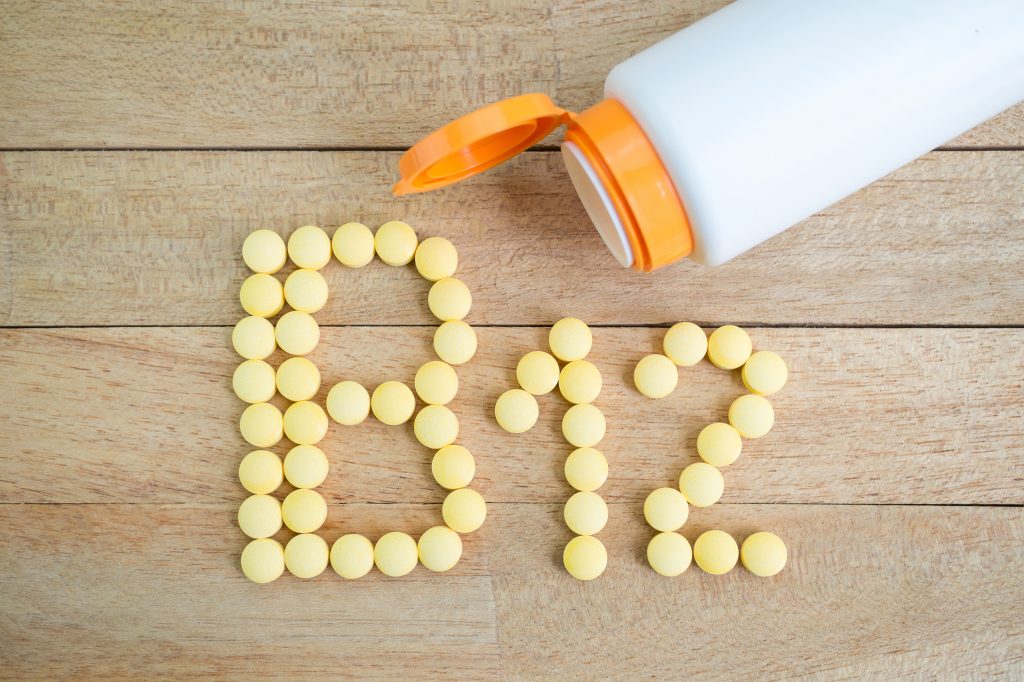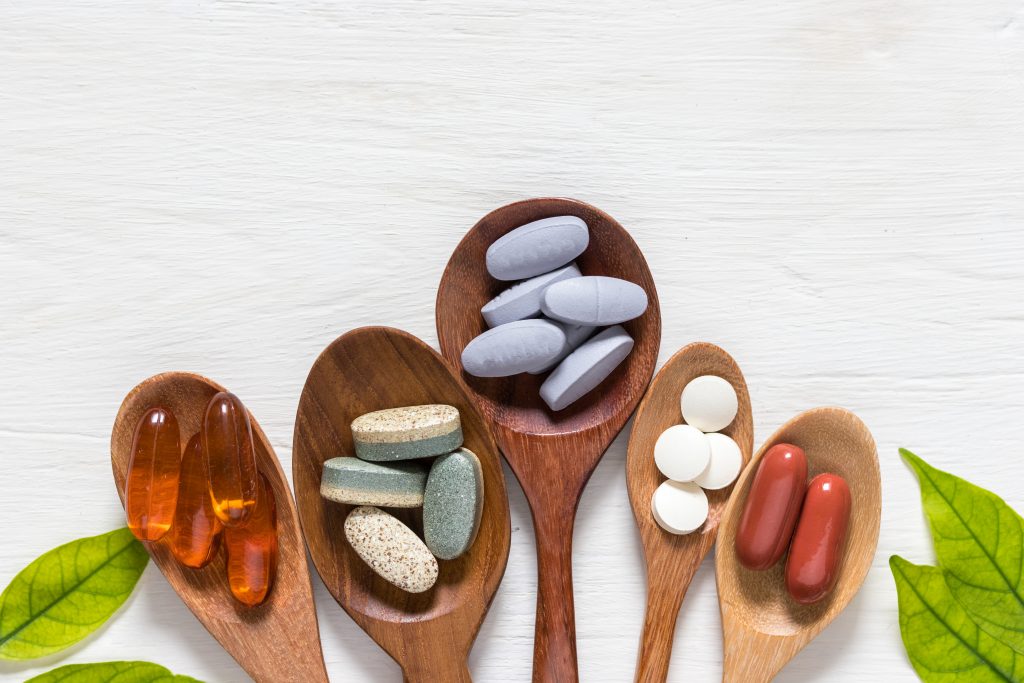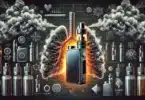As vaping continues to gain popularity as a safer alternative to smoking, several companies are taking this wellness trend a step further by offering products that allow users to inhale vitamins, essential oils, and herbal supplements. But how effective is this? And is it even safe?
Vaping vitamins is definitely a new one, and despite almost no clinical evidence to back up efficiency, some people to claim that it works. Regardless, if you’d like to try to more potent vape products, you know where to go… remember to subscribe to The THC Weekly Newsletter for more stories like this, and to get access to exclusive deals on flowers, vapes, edibles, and many more products! Plus, we have great offers on cannabinoids, like HHC-O, Delta 8, Delta 9 THC, Delta-10 THC, THCO, THCV, THCP & HHC, which will save you $$. Go to our “Best-of” lists to find them!
The rise of vaping
When vaping first came out in the early 2000s, it was marketed as a better option than smoking traditional cigarettes… and to be honest, the trend was initially a bit slow to take off. Fast forward almost 2 decades and by the end of 2021, there are now an estimated 56 million US adults who vape. In total, 52% of Americans report vaping at least occasionally, and about 9% claim to do it regularly.
As of 2018, 9% of total U.S. adults said they “regularly or occasionally” vape. (Gallup, 2018) In the U.S., 27.5% of high school students use vape products. (The Truth Initiative, 2019) According to a 2019 survey, more than 5 million U.S. middle and high school students used e-cigarettes in the past 30 days. (U.S Food and Drug Administration, 2019)
Nearly 1 million e-cigarette users use these products daily, and 1.6 million use it more than 20 times per month. (U.S. Food and Drug Administration, 2019) Roughly 1 in every 20 Americans use vaping devices, and 1 in 3 users vape daily. (Annals of Internal Medicine, 2018) 8% of Americans report using vaping products in the past week. (Gallup, 2019)
20% of Americans ages 18 to 29 use vape products, compared with 16% of those ages 30 to 64, and fewer than 0.5% among those 65 and older. (Gallup, 2018) Young people ages 15 to 17 are 16 times more likely to vape than people age 25 to 34. (Truth Initiative, 2018) From 2017 to 2019, the percent of high school students who vaped in the past 30 days increased among 12th graders (11% to 25%), 10th graders (8% to 20%), and 8th graders (4% to 9%). (The New England Journal of Medicine, 2019)
Naturally, and as was the goal from the beginning, vaping has cut into the market of standard smoking products substantially. For the last few years, smoking rates have been at an all-time low, hovering around 15-16% of US adults. In 1974, this number was well over 40 percent. Youth smoking rates have declined as well. According to new data from the University of Michigan’s Monitoring the Future study, teen smoking is down nearly 23% since 2000.
Although a huge step in the right direction, these numbers don’t necessarily indicate a drop in tobacco or nicotine use entirely. Let’s be realistic, humans have been documented using tobacco for over 8,000 years, that’s not going to stop any time soon. On the contrary, this data simply represents a shift in the way people are using these products.
And because vaping is touted as being relatively safe and healthy, other industries are looking at how to manufacture vapable products for consumers. In cannabis, vaping is one of the fastest growing sectors in the industry. Live resin, distillate carts, disposables and similar products are taking over the market. Based on data from industry analytics firm Headset, legal states like California, Colorado, Nevada, Oregon, and Washington have seen sales of vapor products jump by over 20% in 2021, and that number is steadily rising.
Vaping vitamins?
Vaping vitamins is one of the lasted trends to play off the vaporizer industry. Promoted by companies as a “better alternative to shots and pills”, more and more people are wondering if these little pens filled with vitamin cocktails can do anything to benefit their health. There is no tobacco, nicotine, or cannabis in these vapes, simply flavored vitamin mist. Most often, you’ll find them filled with vitamin B12, but a few brands are offering other compounds and blends such as melatonin and caffeine.

It’s not very widespread just yet, but enough so that a handful of companies are selling them online, in their own stores and other online marketplaces like Amazon. I have not been able to find any storefronts that carry these products but that could change at any time. Some of the common names you may hear in this industry are Breathe, VitaminVape, VitaStik, BioVape, NutroVape, and Monq.
“Like so many concepts that catch on in wellness circles, companies that sell these products take something with a veneer of scientific backing or credibility, couch it in language that sounds healthy, and then sell it to you via a marketplace with very little regulation or oversight – a familiar concept in the cannabis industry, especially when it comes to the alternative products market.”
About B12 in the human body
Vitamin B12 is a substance has many health benefits to humans, but we do not produce it naturally. It’s vital to ensure that numerous different bodily functions operate as they should – like the forming red blood cells, synthesizing DNA, and promoting proper neurological functioning. B12 is present in many high protein foods like meat, milk, fish, and eggs, which is why vegans may be “deficient”. Older adults and people with gastrointestinal problems or low immune systems may also be more inclined to develop B12 deficiencies.
That said, true B12 deficiency is actually quite rare, many people only incorrectly believe they are clinically deficient. For the most part, this is not a condition that can be self-diagnosed and feeling low on energy and out of focus are not the only qualifying symptoms.
“B12 is a drug, essentially,” says Dr. Ron Crystal, the chair of the genetic medicine department and a practicing pulmonologist at Weill Cornell Medicine & New York Presbyterian. “If you’re deficient, your doctor should prescribe what you should be doing. If you have normal levels, adding more doesn’t do anything. It doesn’t help,” he says. “The concept of just taking vitamin B12 to increase your energy and so on is a myth.”
Because the symptoms of B12 vitamin deficiency are so wide-ranging, this “myth” has been further propelled by celebrities, wellness bloggers, and regular people who claim that B12 is a miracle cure for lack of energy. If you’re old enough to remember that show The Simple Life, there was an episode in which Paris Hilton and Nicole Richie got B12 shots in their buttcheeks (definitely help push the trend forward). Madonna and Justin Timberlake also claim to get B12 injections and IV drips.
As far as prescriptions or treatments go, it’s typically given via injections, nasal sprays, or gels. And it’s important to note that there is such thing as too much B12, which can lead to various side effects including but not limited to rashes, acne, increased blood pressure, discolored urine, and facial flushing.
Is it effective? Or safe?
Companies claim it is safe (of course), but there is not a lot of evidence to back up these claims. As a matter of fact, the only existing research they have to reference are dated back from the 1950s and 1960s. Add to this, those studies used a “cool mist” which is completely different from a heated vapor. To date, there are still no real studies on vaping vitamin B12, or any vitamins for that matter.

“To me, [using vitamins and nutrients] is a marketing ploy to sell this product and make it look healthier. Consumers associate vitamins with health,” Regan Bailey, a nutritional epidemiologist at Purdue University, told Scientific American. “These products might be completely safe, but they might not be. We know literally nothing about the safety or efficacy of inhaling vitamins.”
Typically, when you take vitamins orally, the enzymes in your stomach and coon break it down into smaller chemical compounds that can be more easily absorbed into the bloodstream. You can also take them nasally, via a cool mist inhaler. In this scenario, the components would be absorbed by the epithelial cells that line the nasal cavities and airways.
Conclusion
It may sound healthy and beneficial, not much is really known about this new trend of vaping vitamins. It’s likely pretty safe (although that cannot be said with 100% certainty), but it seems like it could be a waste of money if your body is not properly absorbing the compounds. If you feel like giving it a try, by all means, go for it. But me personally, I’ll probably hold off until more research becomes available and just stick to vaping cannabis products.
If you’ve tried vaping vitamins, or if you’d like me to review any specific products, drop us a line in the comment section below. We’d love to hear from you!
Welcome all! You’ve made it to CBDtesters.co, your one-stop-shop for the best independent news coverage of the cannabis and psychedelics-related industry, currently going on. Drop by the site regularly to stay abreast of the exciting world of legal drugs and industrial hemp, and subscribe to The THC Weekly Newsletter, so you never miss a breaking story.
Disclaimer: Hi, I’m a researcher and writer. I’m not a doctor, lawyer, or businessperson. All information in my articles is sourced and referenced, and all opinions stated are mine. I am not giving anyone advice, and though I am more than happy to discuss topics, should someone have a further question or concern, they should seek guidance from a relevant professional.











This is one of the worst articles I’ve seen on vaping in quite some time. I did not expect CBD TESTERS to push such an anti-vape agenda. While I do not support the vitamin aspect at all, it is a sad day when an alt culture publication would smash an industry that is working so hard for legitimacy and then siding against them with the FDA. I’m not sure this woman actually knows anything about vapor that she did not look up on government websites.
I think you completely misunderstood the article. At numerous points I mentioned that vaping is safer than smoking, and that it’s becoming increasingly popular, with statistics to back this up. I vape cannabis products and everyone that I know also does. All I stated was that vaping vitamins specifically (like B12) has not been studied. I also mentioned that it likely is also safe, but might be pointless if our bodies don’t benefit from consuming vitamins this way.